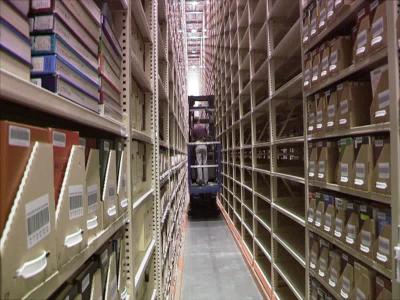Filtering by
- Creators: Allgood, Tammy

(Preprint.) Today's college and university learning landscapes are dynamic and
characterized by increased student demand for highly flexible and self-paced online learning opportunities. Recent fiscal conditions in higher education make learning landscape development more challenging due to finite resources and competing priorities. Similarly, academic libraries are experiencing substantial budget and staff reductions. Despite these trends, academic libraries are in a strong position to contribute to surrounding learning landscapes by expanding student online learning opportunities and promoting the critical use of information. Evolving learning technologies available for free or at low cost provide higher education and libraries with the tools to respond to this fluid environment.
Library One Search (Summon) Usability at ASU


Conference Proceedings

Invited presenter for ALA Annual Conference, 2008.

Quarantined: The Fletcher Library Game Project.

Leveraging Drupal for your business:
Use Drupal to power your business -- hear case studies and learn about adapting to open-source technology.
Libraries are growing into new joint entities -- the library as a place, and the library as a resource. Library websites serve as a resource, delivering tools for learning to patrons and students in an academic setting. Drupal is an ideal tool for facilitating the specialized tasks that many library developers have to complete.
In this session, attendees will learn about:
1. Using the built-in architecture of Drupal 6 and Drupal 7 to meet the goals of library
websites.
2. The 10 best modules for library websites.
3. 10 recommended theming techniques for common library interfaces.
4. New expectations of library websites as gathered from user surveys and usability
studies.
5. Example set-ups of Drupal sites for common library settings and staff organizations.
6. Successful case studies of major library websites run on Drupal.
7. Tips for useful library-specific usability studies with library users and students.
Attendees will come away from this session with a firm understanding of quality library sites as tools, and what many users are growing to expect. They will also learn how to set up a Drupal website for a library, and successful ways to meet the specific resource needs of their organizations.
The archived event website can be accessed here.
In 2014/2015, Arizona State University (ASU) Libraries, the Labriola National American Indian Data Center, and the ASU American Indian Studies Department completed an ASU Institute for Humanities Research (IHR) seed grant entitled “Carlos Montezuma’s Wassaja Newsletter: Digitization, Access and Context” to digitize all ASU held issues of the newsletter Wassaja Freedom’s Signal for the Indian, which Yavapai activist-intellectual Carlos Montezuma, MD (1866-1923) self-published during 1916-1922. The grant team additionally selected a portion of the ASU Libraries Carlos Montezuma archival collection for digitization to provide a more complete picture of Dr. Carlos Montezuma’s life and work.
The ASU grant team produced a searchable online collection on the ASU Digital Repository and created an online exhibition in conjunction with the IHR Nexus Lab’s Developing Wassaja Project. The Nexus Lab’s role at ASU is to grow the digital humanities through interdisciplinary collaborations bringing together humanities, science, and technology. The Nexus Lab partnered with the grant team to create the Developing Wassaja Project which provided an opportunity for faculty, staff, and students at ASU to engage in electronic publication through web application development.
The resulting web platform, Wassaja: A Carlos Montezuma Project, provides context for this digitized collection and facilitates community interaction, including a partnership with Dr. Montezuma’s home community the Fort McDowell Yavapai Nation. In this webcast, Digital Projects Librarian Matthew Harp, Developing Wassaja Project team member Joe Buenker (subject librarian), and grant team member Joyce Martin (librarian and curator of the Labriola National American Indian Data Center) will discuss and demonstrate the resources created and the resulting partnership with the Fort McDowell Yavapai Nation. The webcast will focus on identifying collaborators and needed skills to engage in Digital Humanities research and on identifying the stages of a collaborative project.
Participants will gain insight on working directly with diverse communities; overcoming technical limitations of traditional institutional repositories; collaborative strategies with faculty, research centers, and cultural heritage societies; solutions for moving hidden collections into an engaging digital exhibition; integrating digital humanities research and instruction with library curation; and preparing for long term costs and management issues.
Limited to streaming only those videos a vendor hosted, ASU Libraries sought to expand collection options with a trial project for hosting content locally. Kaltura, was selected as the platform, but Kaltura does not work out of the box. This presentation will cover how using Drupal, along with Kaltura, we built a working video hosting solution. The presentation will cover administrative hurdles, stumbling blocks, pitfalls, enhancements, and lessons learned along the way.

Anthropology librarian Juliann Couture and Joyce Martin, curator of the Labriola National American Indian Data Center, looking at the Center's display of unique Hopi Kachina dolls. Four of the kachinas (Navan Kachina; Talavi Kachina; Flute Kachina; and Ahöla Kachina) were created by artist, carver, and former ASU employee Tony Dukepoo as a gift to the libraries in 1979. The kachina dolls are on display in the Labriola Center located on the 2nd floor of the Hayden Library on ASU's Tempe campus.
